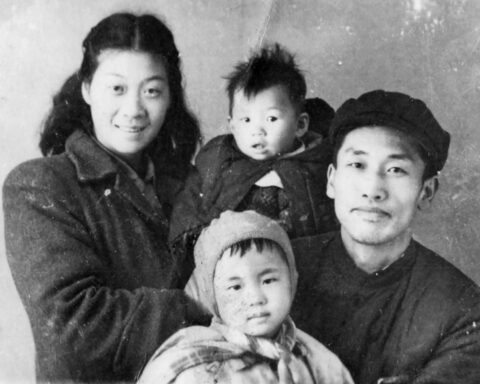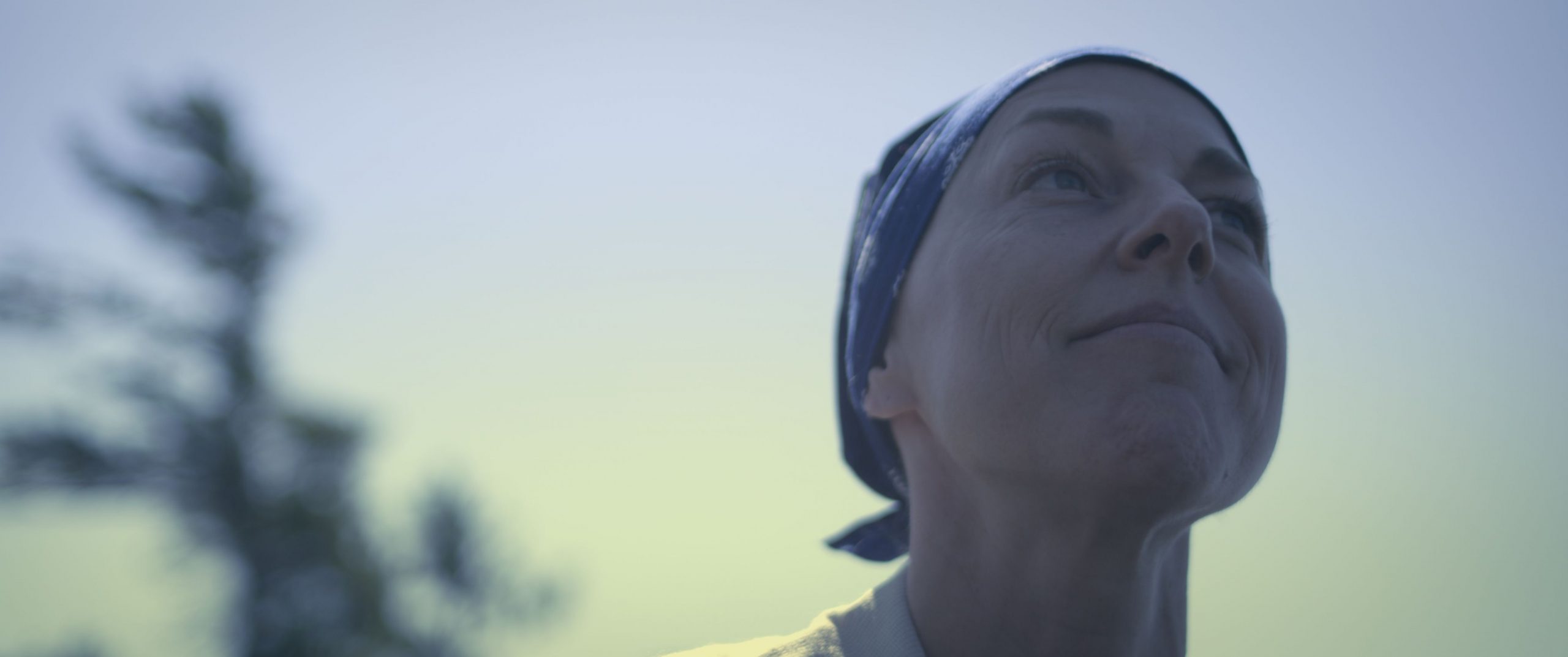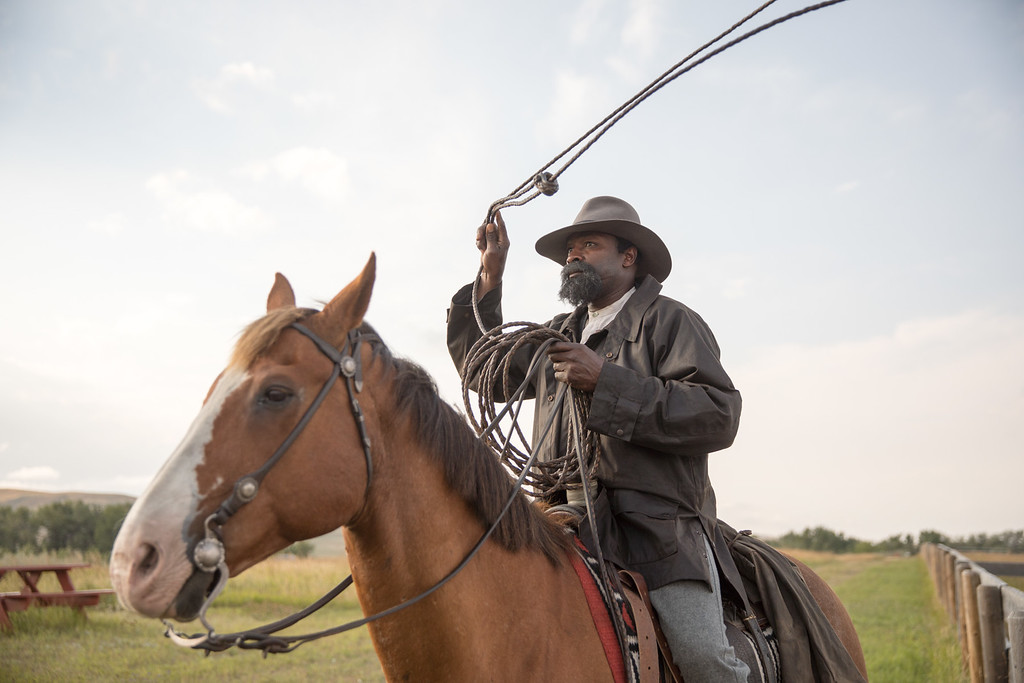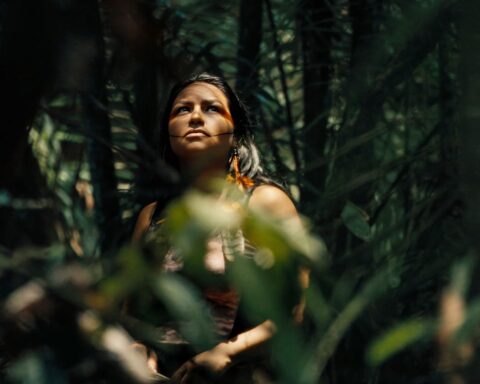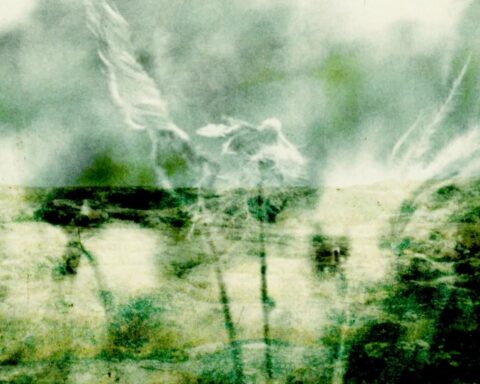Swimming Out Till The Sea Turns Blue
(China, 112 min.)
Dir. Jia Zhang-ke
Faces are the recurring interest of Jia Zhang-ke’s Swimming Out Till The Sea Turns Blue, the director’s third film in a “trilogy” of arts based documentaries that began with Dong (2006) and Useless (2007). The reminiscing, reciting, emoting, boring, or thinking face becomes a site of great interest, as if in an attempt to imbue the camera with the writerly perceptiveness embodied by the subjects of this film. Here, the principal subjects are a trinity of renowned contemporary Chinese writers who focus on rural life: Jia Pingwa, Yu Hua, and Liang Hong. Though these interviewees are the distinct compass orienting a multidirectional film, director Jia’s connection to his home province of Shanxi—a frequent setting of his cinematic interest—is evoked through a fourth author: the revolutionary writer Ma Feng, whose spectral presence is raised in several interviews, including a lengthy conversation with his daughter.
Invocations of the past hurtle towards images of the present with the middle of the film marked by a scene that takes place at the Shanxi literary festival (co-founded by Jia) where speeches, readings, and reflections delivered by prominent writers lapse into one another. It’s an overwhelming sequence that captures the actual environment of any cultural festival: the experience of so much information or brilliance to take in, but not enough time.
In these moments, as with Swimming, it’s best to resist the impulse to comprehensively access everything. Jia’s latest film is a culturally specific work that, light on didactic context and linearity, also embodies the reflective, open nature of the essay film (and a rare case of one without voiceover). Though it would certainly enrich a viewer’s reception of the film, one needn’t be intimately familiar with Chinese literary history or Jia’s oeuvre to appreciate Swimming: those interested in global art and literature will be equally challenged and swayed by the film’s refreshing treatment of writers. Structured by eighteen chapters that serve more as conceptual frames than markers of temporal progress, Swimming is satisfying in its commitment to raising multiple conceptual threads that aren’t reductively tied together for the sake of Western narrative legibility.
Throughout the film, biographical interviews with Jia Pingwa, Yu Hua, and Liang Hong are interspersed with readings of their work by younger people, who pause their lives or work to recite these passages, which are then repeated as intertitles. It’s an emphatic commitment honouring not only the lives of these writers but also their words. While Swimming has no overarching ‘narrator,’ the three main writers offer a kind of polyvocal narration, which lends the film its organic shape. The interviews themselves are often long-winded, and seem minimally edited. Each subject is allowed to wander through their memory and experience, which allows them to naturally reach poignant insights about their artistic relationships to rurality, politics, and culture in China post-1949. They reveal vivid details from their personal lives, sometimes reaching an emotional vulnerability so potent that audience members experience a privileged intimacy with suddenly accessible and deeply present figures of cultural prominence.
Of Swimming’s many contributions to literary discourse, its most powerful insight might be in upholding the importance of literature while refusing to romanticize the life of an artist or merely chart their accolades. These writers are not treated as diviners of truth but humans subject to the flows and impositions of country and history. As with the best poetry, they are grounded in life itself.
Swimming Out Till the Sea Turns Blue screened at the Calgary International Film Festival.
Swimming Out Till The Sea Turns Blue – Clip “The Old and New” from MK2 on Vimeo.






